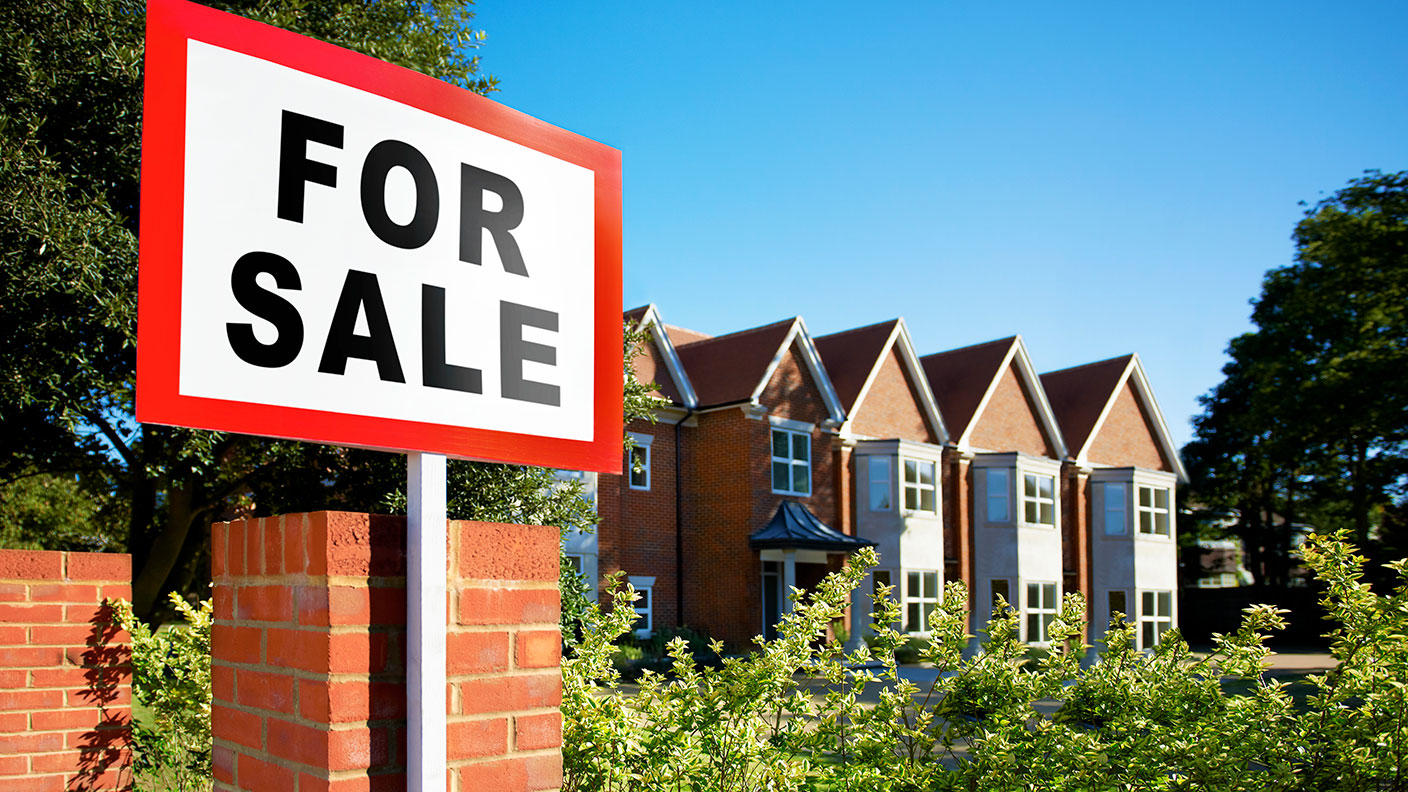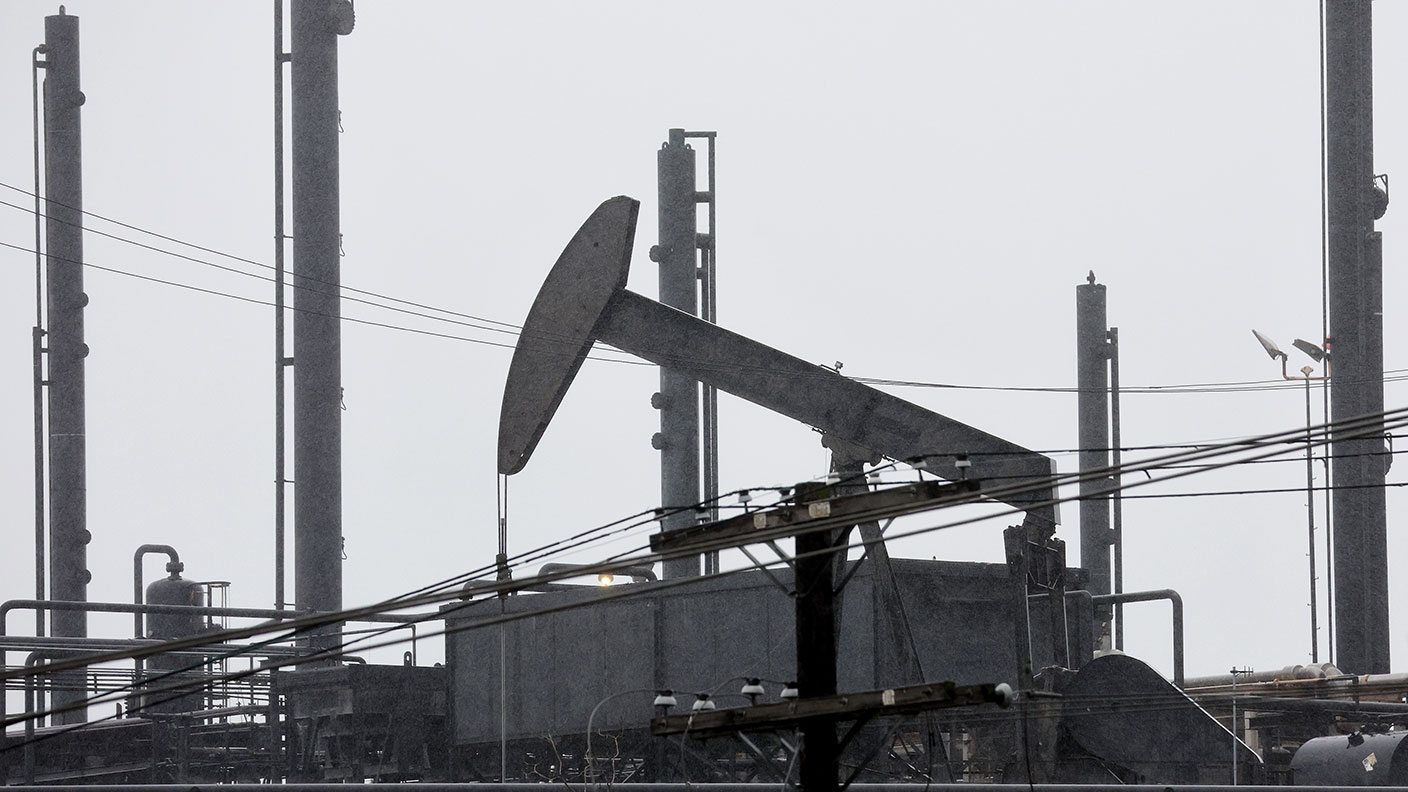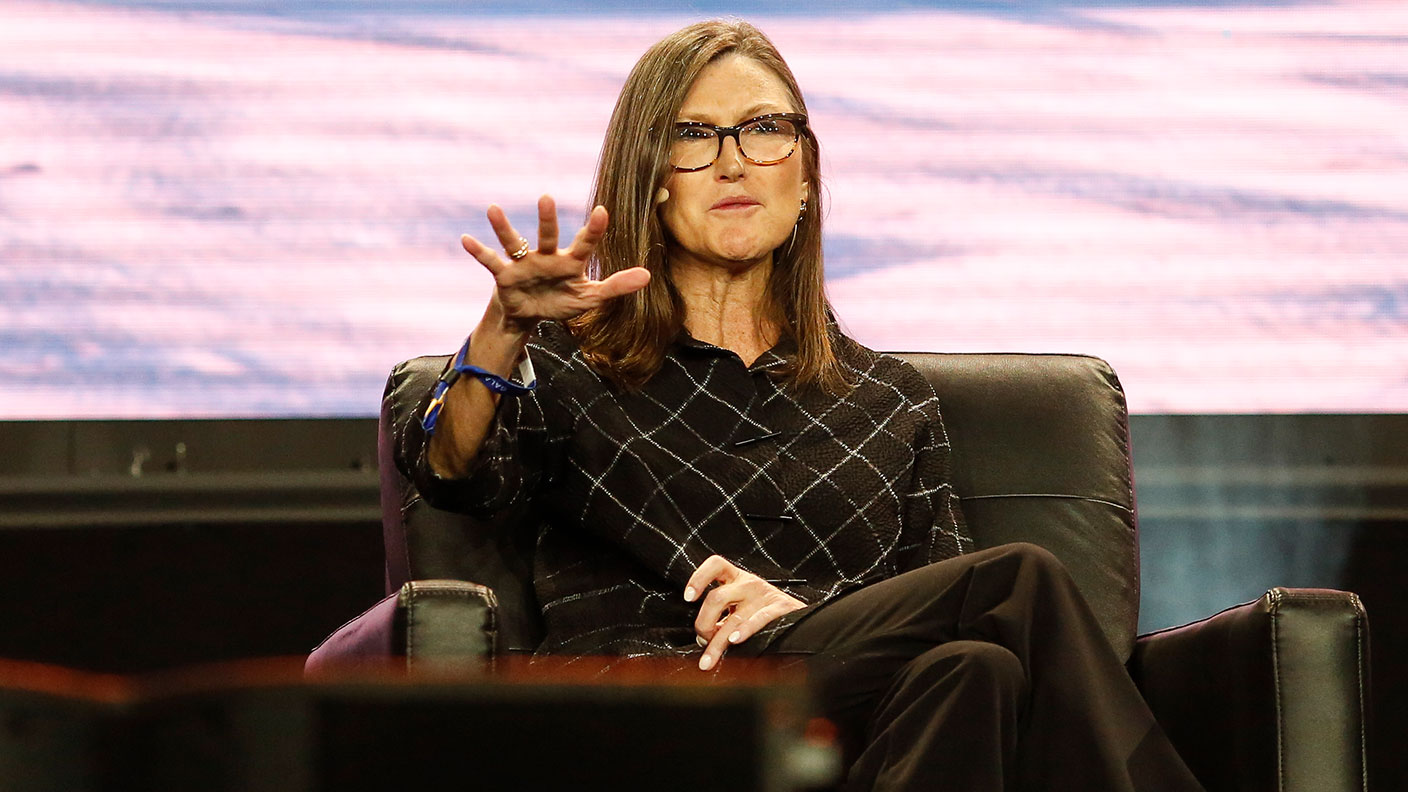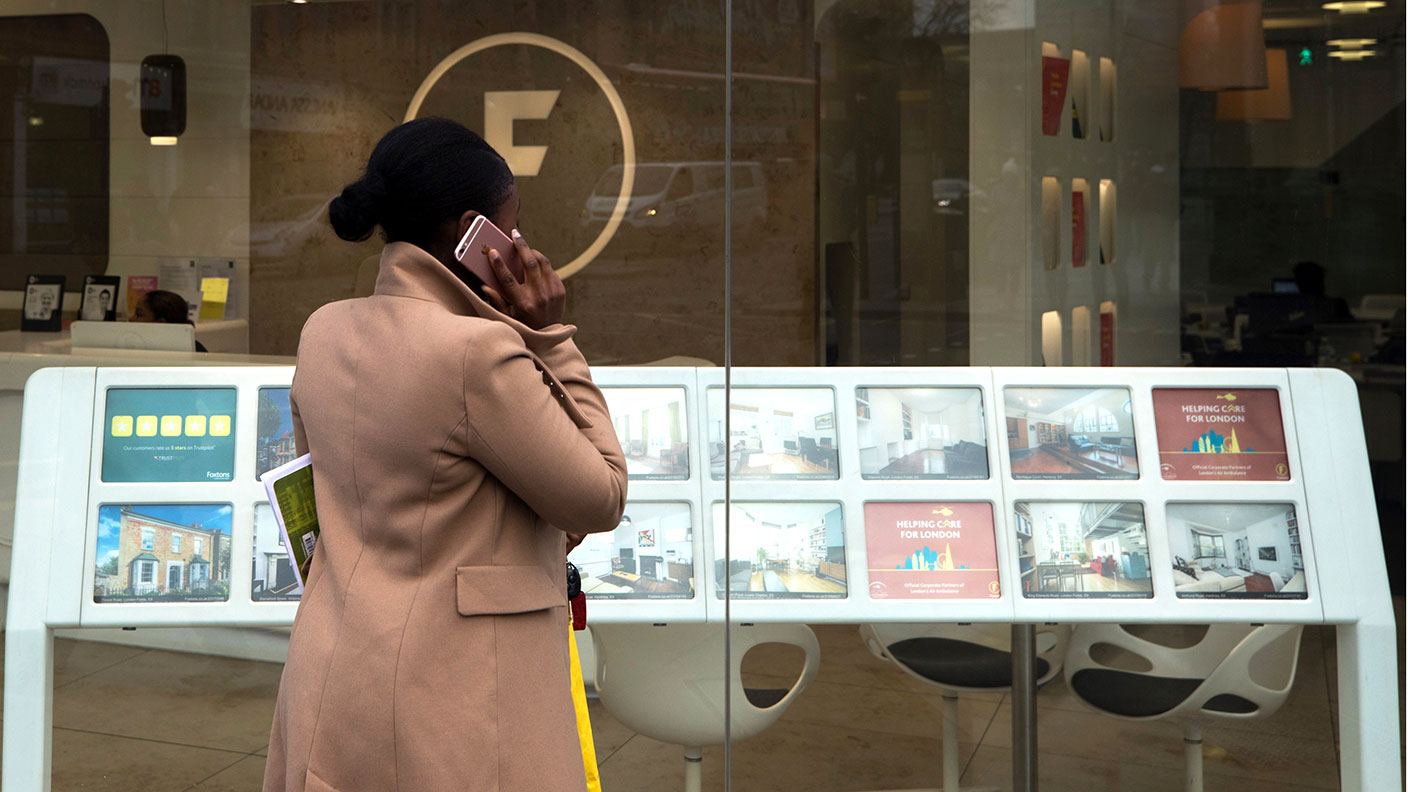Short selling is not unethical – whatever the world's biggest pension fund tells you
Japan’s government pension fund is to stop lending the overseas shares it owns to short sellers. But in reality, there’s nothing wrong with short selling, says John Stepek. Here’s why.

Get the latest financial news, insights and expert analysis from our award-winning MoneyWeek team, to help you understand what really matters when it comes to your finances.
You are now subscribed
Your newsletter sign-up was successful
Want to add more newsletters?

Twice daily
MoneyWeek
Get the latest financial news, insights and expert analysis from our award-winning MoneyWeek team, to help you understand what really matters when it comes to your finances.

Four times a week
Look After My Bills
Sign up to our free money-saving newsletter, filled with the latest news and expert advice to help you find the best tips and deals for managing your bills. Start saving today!
People have a problem with short sellers. I'm not sure why this is. Maybe it's a market-wide manifestation of the notion: "if you can't say anything nice, don't say anything at all". Maybe it's because most people are long, and so the number of people who want prices to go up is always much bigger than the number who want prices to go down (which is how short sellers make their money). Or maybe as with so many things finance-related it's just plain old ignorance. In any case, now the world's biggest pension fund is trying to turn it into an ethical issue.
How to make money from shares going down
Short selling is the art of making money when a share goes down in price. If you're "long", you are betting a share price will go up. If you're "short", you're betting it will fall.
How do you do that? Take a company whose shares are trading at £10. You think it's going to come out with an unexpectedly bad set of results, and the share price is going to fall to £8. How do you profit? You borrow the share from someone else who owns it, and tell them you'll give it back after a set period of time. You sell the share at £10. You now have £10, but you owe someone a share. The company's results come out. You were right, they're terrible. The share price dives to £8. You buy the share back and return it to its rightful owner. You now have £2 profit. Clever you.
MoneyWeek
Subscribe to MoneyWeek today and get your first six magazine issues absolutely FREE

Sign up to Money Morning
Don't miss the latest investment and personal finances news, market analysis, plus money-saving tips with our free twice-daily newsletter
Don't miss the latest investment and personal finances news, market analysis, plus money-saving tips with our free twice-daily newsletter
"Wait a minute there," I hear you say. "Why would I a long' investor lend my share to this horrible short seller who does not share my opinion on the marvellous prospects for this company?" Well, the reason you'd do that, is because the short-seller pays you a fee for borrowing the share. In other words, you get paid for renting it out.
More to the point, as a “long” investor, maybe your time horizon is different. Maybe you're happy to sit on the share for five years, whereas this person wants to make a bet on the next six weeks. The short seller is willing to pay you rent on a share you hold for the long term, in exchange for the privilege of expressing their short-term market view. That sounds like a good deal to me. That sounds like I don't know a functioning free market?
When Elon Musk applauds your corporate governance
And so we come to the meat of the story. The world's biggest pension fund Japan's Government Pension Investment Fund (GPIF) has jumped on the ESG (environmental, social and governance-focused) bandwagon along with everyone else.
Now, according to the FT's Leo Lewis and Billy Nauman, the fund has decided that it will no longer lend the overseas shares held in its portfolio to short-sellers. The fund owns about $733bn in equities, and about half of those are invested overseas. So, as the FT's Lex column puts it, "that is a big bite".
And the thing is, as the FT points out, the GPIF was making about $150m a year from lending out these shares. It's not a huge amount in the context of the overall portfolio, but at a time of negative interest rates, any positive return stream especially a risk-free one can't be sneezed at. So this isn't cost-free.
So what's the rationale here for sacrificing the free money? GPIF is apparently worried about the governance bit of the ESG. You see, if you've loaned a share out, you don't know what the end user is going to do with it. And you also lose the voting rights while you don't hold the share. That stops you from "exercising proper stewardship over the underlying investments".
In other words, in a world where big funds are increasingly expected to make the effort to pay some attention to what company boards are doing rather than just playing golf all day, allowing your shares to be loaned out to short-sellers isn't a good look.
But as the FT writers point out, this is quite a lame excuse. You can make sure you get the shares back for any key votes, for example. It's not hard to do.
Instead, I suspect that this is just yet more lazy corporate virtue signalling and greenwash, taking the place of genuinely grappling with tough issues.
Just to be clear, I don't have any special fondness for short selling it's not something private investors can easily do without spread betting (which is wildly risky in itself) and it's probably not something most of you really need to concern yourselves with.
But given that opinions make a market including the opinion that a share price should be a lot lower than it currently is the constant eagerness on behalf of those in power to get rid of shorting strikes me as a very bad idea.
The reality is that short selling is a pretty thankless job. You have to not only get your figures right, but you also have to get your timing right. That's hard. One recent academic paper from fund manager Robeco even argued that it was basically a waste of time (though I'd expect that to get a lot of push back).
And surprise, surprise you tend to find that the managements who yelp loudest about being targeted by short sellers are also the ones who could really do with the scrutiny.
There are lots of arguments on the topic but to close for today, for anyone who might still be thinking that there is something genuinely "icky" about short-selling, reflect on this: in response to the story, Tesla CEO Elon Musk tweeted: "Bravo, right thing to do! Short selling should be illegal."
I don't know about you, but if I had Elon Musk praising my corporate governance, it would give me pause. It's like having Sweeney Todd admire your shaving technique or your shortcrust pastry.
Get the latest financial news, insights and expert analysis from our award-winning MoneyWeek team, to help you understand what really matters when it comes to your finances.

-
 Can mining stocks deliver golden gains?
Can mining stocks deliver golden gains?With gold and silver prices having outperformed the stock markets last year, mining stocks can be an effective, if volatile, means of gaining exposure
-
 8 ways the ‘sandwich generation’ can protect wealth
8 ways the ‘sandwich generation’ can protect wealthPeople squeezed between caring for ageing parents and adult children or younger grandchildren – known as the ‘sandwich generation’ – are at risk of neglecting their own financial planning. Here’s how to protect yourself and your loved ones’ wealth.
-
 Are UK house prices set to fall? It’s not so simple
Are UK house prices set to fall? It’s not so simpleAnalysis Figures suggest UK house prices are starting to slide, but we shouldn’t take these numbers at face value, explains Rupert Hargreaves.
-
 Tesco looks well-placed to ride out the cost of living crisis – investors take note
Tesco looks well-placed to ride out the cost of living crisis – investors take noteAnalysis Surging inflation is bad news for retailers. But supermarket giant Tesco looks better placed to cope than most, says Rupert Hargreaves.
-
 It may not look like it, but the UK housing market is cooling off
It may not look like it, but the UK housing market is cooling offAnalysis Recent house price statistics show UK house prices rising. But John Stepek explains why the market is in fact slowing down and what this means for you.
-
 Think the oil price is high now? You ain’t seen nothing yet
Think the oil price is high now? You ain’t seen nothing yetAnalysis The oil price has been on a tear in recent months. Dominic Frisby explains why oil in fact is still very cheap relative to other assets.
-
 What can markets tell us about the economy and geopolitics?
What can markets tell us about the economy and geopolitics?Sponsored Markets have remained resilient despite Russia's war with Ukraine. Max King rounds up how reliable the stockmarket is in predicting economic outlooks.
-
 The tech bubble has burst – but I still want a Peloton
The tech bubble has burst – but I still want a PelotonAnalysis Peloton was one of the big winners from the Covid tech boom. But it's fallen over 90% as the tech stock bubble bursts and and everything else falls in tandem. Here, Dominic Frisby explains where to hide as markets crash.
-
 The market is adjusting to a new “short dreams, long reality” world
The market is adjusting to a new “short dreams, long reality” worldAnalysis As interest rates rise, things are starting to change, says John Stepek. Reality is biting back. Gone are the fanciful ideas built on hope – a business now needs a solid foundation.
-
 Are UK house prices heading for a fall?
Are UK house prices heading for a fall?Analysis UK house-price growth is slowing as interest rates rise. But interest rates aren’t all that matters for house prices, says John Stepek.